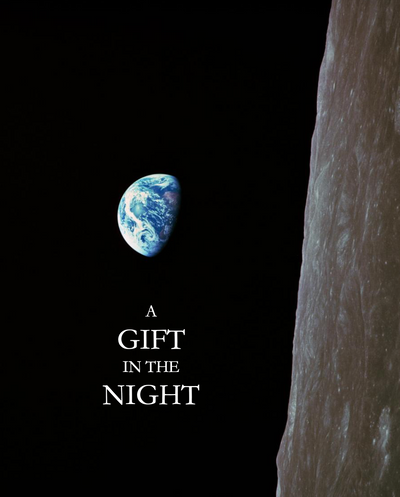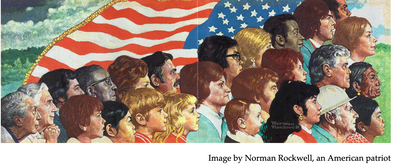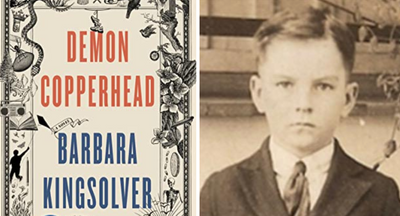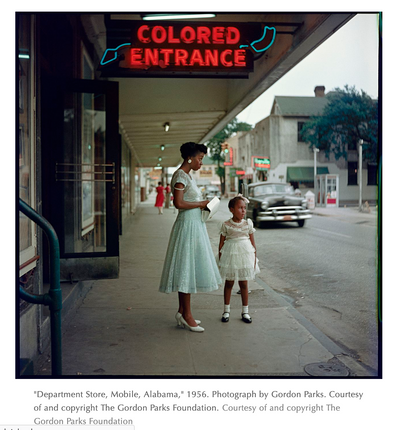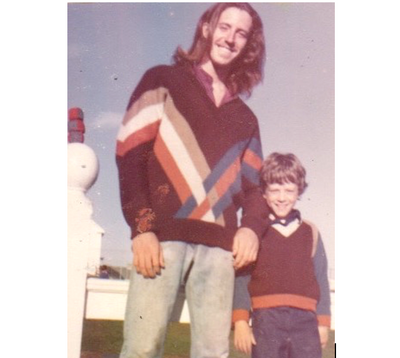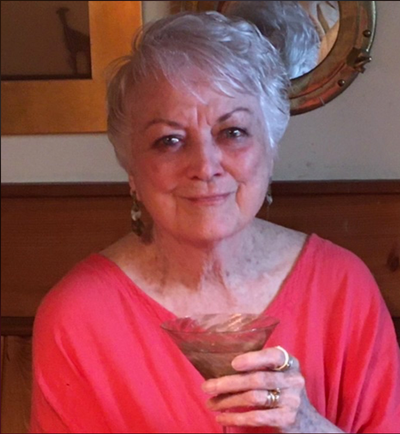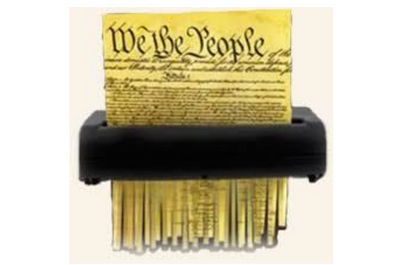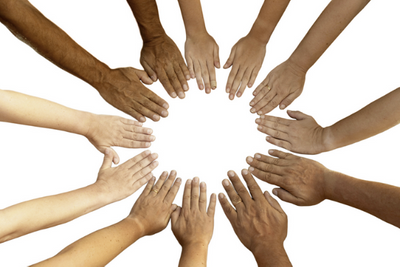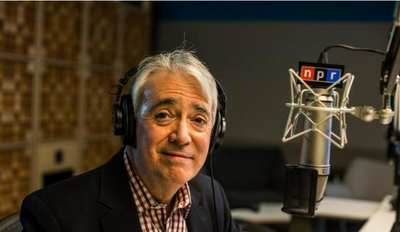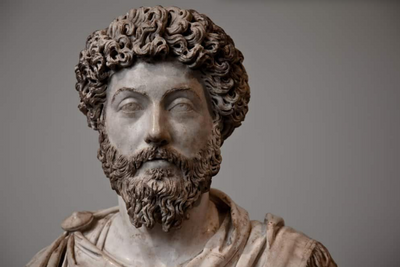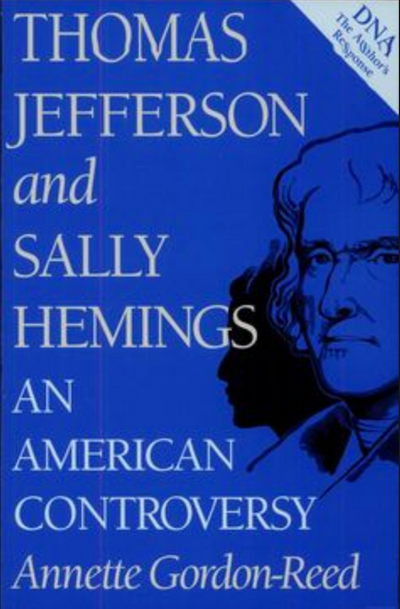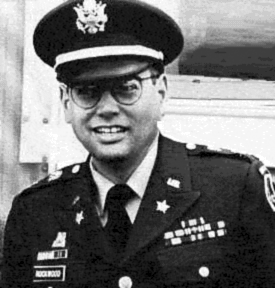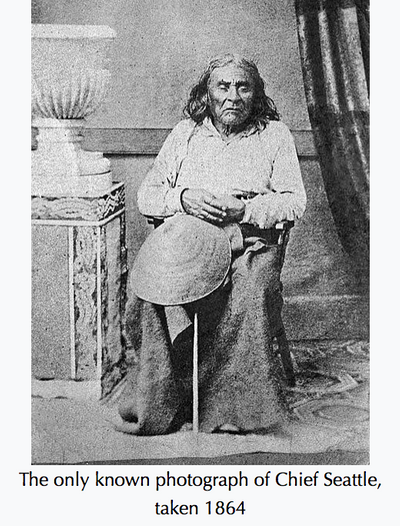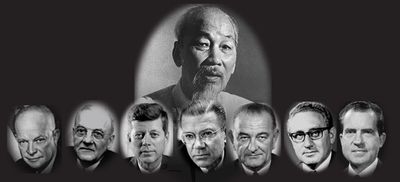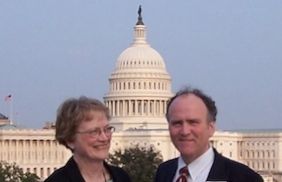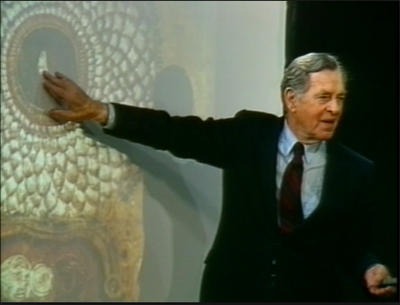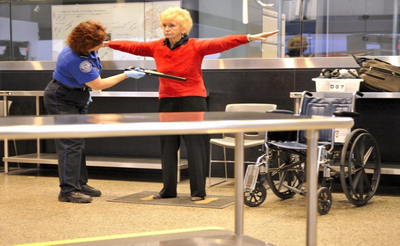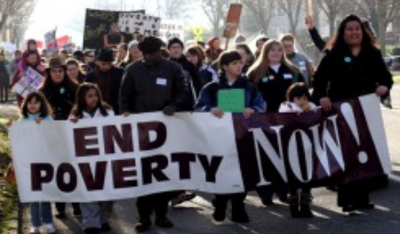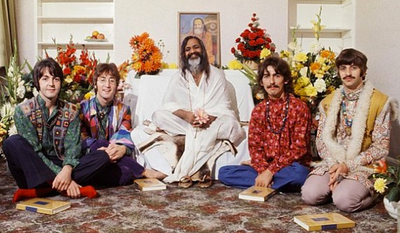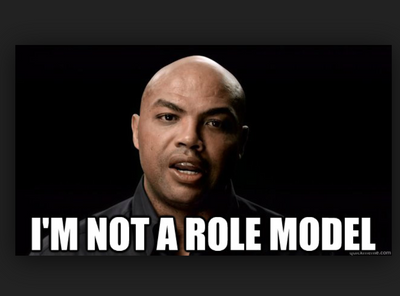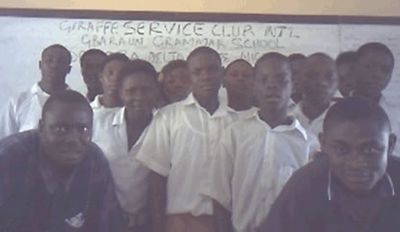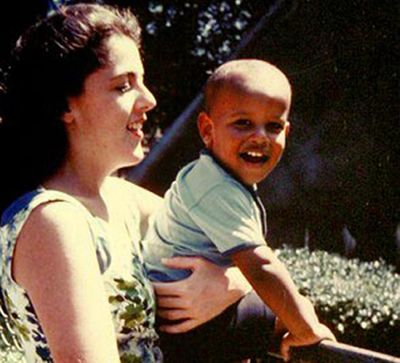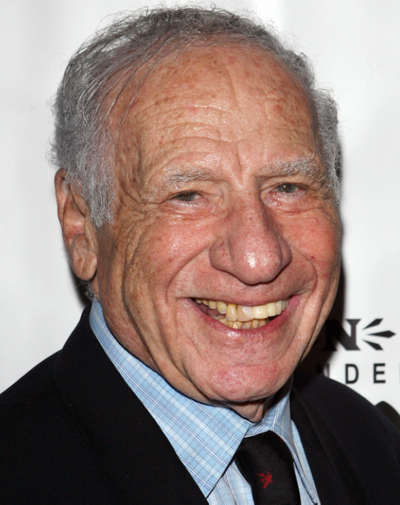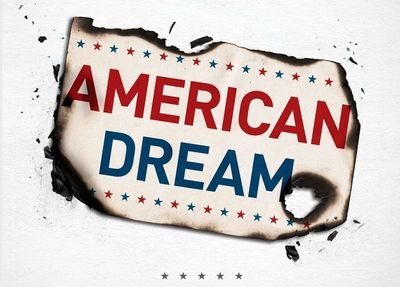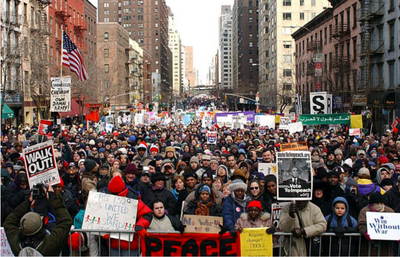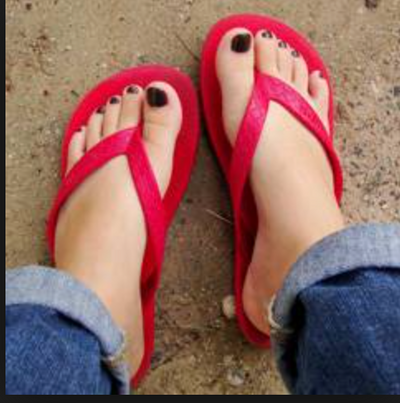Opining
Many of these pieces appeared in the Huffington Post before that platform became so crowded with writers that it lost its appeal as a venue. It's amazing how many other sites pick up from HuffPo; one of these – I forget which one – ended up on so many thousands of sites I figured only bots were moving the words, or reading them. I'm having more fun now on Facebook, where real people respond. One of these days, I'm going to figure out Medium, which seems to be where a lot of Cool People post their stuff.
IF YOU COVER YOUR EYES IN A CRISIS...
Written on February 6, 2025, as Project 2025 moves from plan to action...
A few days ago, in her Tuesday live talk, Heather Cox Richardson told a story that broke the dam of tears I’ve been holding back. It was advice from a veteran trucker, applied to what we all must do in this national crisis. After years on the road, he said that too often when things suddenly got really dangerous, drivers panicked and stopped driving. They covered their eyes, and they died.
His advice was Keep driving!
Well, that hit a nerve. A few years ago, I’d stopped my sedan on the one highway on the island where I live, waiting to safely make a left turn, watching oncoming traffic. Suddenly I was airborne, looking at the sky, then IN the oncoming lane with a 16-wheeler coming straight at me. Fast.
moreMESSAGE RECEIVED
A recent dream hit me hard, what I could remember of it, what I managed to scribble down before it evaporated…
As I began to wake that morning, I had a vague memory of John O’Donahue saying, in his luvly brogue, “When you dream, when you wake in the morning, when the clock goes off or whatever, don’t open your eyes first. Keep your eyes closed and try and get the tail end of the dream. And then if you just get two fingers on it, you’ll pull most of the thing back, and then just note it down. The Talmud says that a dream that is not interpreted is like a letter that has not been opened. And now, if you’re sending yourself these letters every night, it’s only courtesy to call around some time and kind of pick them up.”
Our dreams tell us who we are, John said. In First Nations, futures were planned by the symbols in the dreams. This dream I was emerging from, this letter I’d just received, felt momentous and had to be grabbed by the tail, opened, its message captured and deciphered.
Trying to pull the thing back, I grabbed a pencil and pad by the bed, wrote fast, eyes closed, trying to keep seeing the images I’d seen, hearing the words I’d heard.
The day roared in, the busyness began, and I moved through it, dragging butt, everything feeling too heavy to move, the scribble upstairs, back-of-mind, through the hours. What did the dream mean? Why was it weighting my day?
moreLooking at Two Old Guys
Two very old men are running for President. It isn't ideal. We can wish they were 58 and 61 instead of 78 and 81. But here we are.
As an even older American, deeply concerned about the fate of the nation and of the world, I'm struggling with this, as I'm sure you are. I’ve been living in the Country of Old for a long time now. I know what I can and can’t do and I forge ahead accordingly, with lots of notes-to-self, some no-floor-work exercise, some naps, and hitching with friends instead of driving when eight-lane highways are involved. I’m hugely grateful that with all that, I still have fast-firing synapses and a muse who feeds me words as fast as I can write them down.
So here's what this 91-year-old is thinking about these two old guys—
Both of them are showing signs of diminished capacity. Both are failing to see their own diminishment. But we can see it. In both men. The idea that only the 81-year-old is less than he once was is nuts. The 78-year-old went round that bend years ago. Both of these guys are screwing up in ways that younger people don't.
And then there are the differences. The all-important differences.
The 81-year-old is an experienced public official, with decades of honorable service. Thanks to that service, his knowledge of the nation and of the world is superb. As POTUS he's gotten so much done, he's looking like FDR, LBJ and Teddy Roosevelt rolled into one, and considering the mess he inherited from the other guy, it's a bloomin miracle.
morePATRIOTS & STRONGMEN
They are, they tell you, red-blooded, white-hatted, true-blue Americans. You see them on the news, perhaps on the roads, maybe at your dinner table. If you’re white, they may be relatives. They’re certainly among your neighbors, unless you live in a totally blue area.
You may know them as the ones who show up with shovels when your car needs to be dug out of the snow, when your dad needs a lift to the Legion meeting, when somebody’s sick and they bring casseroles. Good guys. Good gals.
That gets confusing when they’re also the ones who vote for a president you see as a power-mad con man, when they join groups that attempt a coup, that advocate civil war to give the con man more power. WTH?
It all has me pondering a lot of things, including patriotism. Just that one thing right now, the nature of patriotism, for an American. Not all the many many other aspects of the differences we’re experiencing with each other. Only this, for now—what does it mean to be an American patriot?
I know I’m a patriot. I love the innate American hopefulness that we can do better, our wise-ass sense of humor, our informality. I love the memory of our being Good Guys who went across the seas to stop the Japanese from ruling all of Asia, the Nazis from taking over Europe.
moreDEMON AND DAD
Turning the last page of Kingsolver’s massive new book left me struggling to re-enter the life I’m living, here in the upper left corner of this nation. I’d been down in Kingsolver’s southwest Virginia for days, evenings, sometimes on into the wee hours, captivated by Demon, her voice on these pages, an 11-year-old when he begins talking to you, a kid trapped in inland poverty, yearning for the sea.
Pulling myself out of his world, looking out at the Salish Sea, I’m struck by a sudden presence. Dad? What are you doing here? And why? Then I got it. After not thinking of him even once during the days I spent with Demon.
Frank Medlock went into the Carolina mills at 13, becoming a “linthead” like his dad, like his grandfather. But he ran away to sea at 16, taking one of the only ways out that poor kids have always had—enlist. Volunteer to kill people you don’t know, hoping you don’t get killed yourself.
He was smart, curious, quickly learning the ways of the world—and that he must never sound southern. “If you talk like that, people think you’re stupid.”
Kingsolver’s Demon howls in anguish about that very perception, one that I’ve shared, along with so many other city people, northerners, westerners, New Englanders. Demon’s intelligence, abilities and talents will shatter the redneck stereotype I’m betting you have in your mind.
moreTHE "INDUSTRY"
I don’t fancy myself a movie critic but I have some hard-to-ignore thoughts about two recent films, both about the movie “industry,” both wrenchingly hard to watch.
Blonde is of a genre that annoys the hell out of me, the one in which famous people are fair game for fictionalizing while the storytellers keep said famous people’s names on the characters. The writer of the book the film’s based on, Joyce Carol Oates, is a giant among fiction writers and seems to have felt entitled to make Marilyn Monroe, a real person, a larger than life symbol of obsession in pursuit of an impossible goal. Monroe’s life was “material” for Oates’ epic. There are enough facts in the epic to make viewers think they’re seeing Monroe’s life. But they aren’t. They’re seeing Oates’ Moby Dick.
The Hollywood depicted in Blonde is brutal, savage, devouring, just as it is in Babylon, which we watched the night after we saw Blonde.
Babylon is a 21st Century riff on Singing in the Rain which was a 1950s look at Hollywood in the 1920s as talkies upended the silent era. Singing in the Rain was delightful movie-making, a classic, a lark, innocent and wide-eyed, full of laughter and great dance moves.
moreON SOCIAL SECURITY
- A piece I did years ago for the late lamented Seattle Post Intelligencer—
- It amazes me that it's still exactly how I see the attacks on Social Security that are happening now. We still need to fight the forces that are still trying to destroy the most successful federal program we the people have ever had. MORE
BELATED REALIZATION
Did you ever realize something decades late? I just did. I was watching a TV series that did a scene in a wealthy Black family’s New York apartment. The characters are art collectors and there’s this Gordon Parks photograph on one of their walls.
Gordon Parks. One of the most important photojournalists of the twentieth century. His work is monumental... icons of the civil rights movement, a chronicle of Black lives in the US, and in Brazil. He also composed music, wrote and directed the first Blaxploitation film, Shaft... he was a giant. And sometimes, he did fashion shoots. I’m guessing it was for extra cash... maybe to fund a movie shoot. Otherwise, why bother?
I suddenly thought of a poem I wrote about John Singer Sargent, the hottest painter of his day, dashing off a portrait of a rich man’s daughters so he could pocket the fee and get back to work that really mattered to him. I made the picture the cover of book of my poems, it intrigued me so much.
moreTHE UPSIDE OF GIN
Back when I was freelancing to make the rent, one of my gigs was doing press for a residential psychiatric clinic. Hard to do because you couldn’t talk about any of the interesting people who were there, drying out.
The hospital’s financial stability was based on 28-day residencies for alcoholics. That was the amount of time covered by insurance—not some guaranteed period it may actually take for an alcoholic to get past “dry drunk” to long-term clean and sober.
My favorite of the almost 30 psychiatrists on staff was an Irish Jew with a brogue thicker than oatmeal. One day, we were talking about an upcoming anti-alcohol event that might be newsworthy, when he paused. After a moment of pondering, he said “You’ll not tell anyone I said this but... if you look at it all, over time, I do believe alcohol has done humanity more good than harm.”
I think of him when an evening martini brings my shoulders down from my ears, and dinner becomes not only possible but interesting.
There are loud echoes of the past in that stemmed glass. There’s being in the Union Club at the top of a skyscraper in Tokyo, alone, after a week of stunning stress. It was 1957. My best bud from college had been killed in a plane crash and the Air Force had contacted me, his designated next of kin, to tell his pregnant wife he was dead and take care of her as the birth approached.
moreA G.O.B.'S DECLARATION OF PISSED-OFFEDNESS
I’m not good at regrets, partly because I seem to have been born without a rear view mirror. I’ve always been charging on to the next thing.
Now, with so many years behind me, I’m looking back and not seeing many things to regret. There have been godawful events but they’ve made openings for good things to come so I’m not regretting most of the slings and arrows I’ve been hit with. You can even get novels out of those bad-to-good sequences.
I probably should have been nicer to my mom but there’s that rebellion thing that actually can be good, especially since she pretty much cut me off at the knees, sure that her main duty as a parent was to make sure I wasn’t conceited. She was so successful, I was more than half way through my life before I knew I was good at anything. So, even thinking about my angry battles with her, I’m not entirely regretting my words and actions.
Being in your 80s means understanding things you didn’t before (unless you’re so dense that life can teach you nothing). I’m understanding big stuff about being old. Like how vexing it is to be treated with amusement. Little old lady, nattering on, isn’t she charming? No. She’s not. And if you do that condescending thing again she may unleash some serious whoop ass on you.
moreRaising Nonviolent Sons
This story was supposed to be published in MS, but the editors wanted to delete the ending and I refused, the ending being the point of the piece—a young man is guiding a boy away from fantasies of violence, and both are setting out into a world where violence is an ever-present danger. It was published intact by NAJ, the New Age Journal....
One of our favorite rituals is the one where I go into Phil’s bedroom on weekday mornings and open the blinds and he covers his head and mutters about cruel and inhuman mothers and I fuss about good-for-nothing teenagers until he’s on his feet. Sometimes David, who is five, helps out by sitting on his big brother’s stomach. It’s Saturday and David is sleeping in but Phil’s got a ball game scheduled in the park, so I start our usual routine.
My good spirits die instantly when the sunlight falls on a face I don’t recognize. The fine, strong bones have been replaced by purple quilting, and a jagged maroon line, bristling with suture knots, is gashed from his temple to his nose, barely missing the crease where his eye is now buried. There’s wadded, bloodied bandaging on the pillow.
How badly is he hurt? How did this happen? Why didn’t he wake me when he came in? The questions roar through my mind, distracting me from the fact that I’ve stopped breathing. I touch his shoulder hesitantly. He rolls over and I see the real Phil, still there in the other side of his face.
moreI'M RUNNING OUT OF TIME
There’s a long-known phenomenon among us humans—we know that everybody dies yet we roll merrily along, day after day, feeling exempt.
That would be me. Sigh. I am, herewith, staring myself down. No more ignoring/forgetting/denying it. I am running out of time.
If you proceed with reading this—feel free to maintain your own exempt status, however unfounded your rational self knows that to be. I mean, this is about me, not you, so it doesn’t have to be a downer for you, right?
For me, the Covid stats are a good alarm bell. People who are old old, are the most likely to die if they/WE get it. And there’s the plain old math. I was born in 1933. It is now 2020. I am therefore—to my great astonishment—87. That’s OLD old. Even without a viral push, you don’t get many more years after 87.
Most people that age are already dead, and the ranks grow thinner every day. RBG, born in 1933. A chum in NYC, 87, died in a dementia-care center. Of Covid. My mentor in public relations work (an age peer) tripped on a sidewalk, hit his head and, after weeks in a coma, died.
moreTHINKING THE UNTHINKABLE
By Ann Medlock & John Graham
FASCISTS COULD TAKEOVER OF THE UNITED STATES — It isn’t something you want to hear; it’s not something we want to say. But there’s a tried and proven path that autocrats take to lead their countries into fascism. Adolph Hitler refined and perfected that path. Donald Trump is making one move after another that replicates Hitler’s drive to fascist control of his country.
We, Ann Medlock and John Graham, write this piece as seasoned political observers whose politics are just left of center; we are not far-left radicals. And what we’re observing is that, with just weeks left until what could be the most important election in US history, the evidence from Donald Trump’s four years in office is now incontrovertible: He is set on destroying this constitutional republic and replacing it with a fascist state with himself as its head. His moves are a clear and present danger to this nation, raising alarms from thousands who see what we see.
We ask you to think the unthinkable. Please look at a fast-growing sequence of similarities that has so many observers are so alarmed.
IN THE BEGINNING, we see two men, both scorned by their peers and determined to bury their detractors. For most of the 1920’s Adolph Hitler was regarded by the German political and social establishments as a self-aggrandizing fool who was not to be taken seriously. Donald Trump was similarly dismissed by New York’s political and social elite, who were joined by national figures when he began to interject himself into national issues, and then ran for president. The ridicule and slights both men endured for years fueled their drives for vindication, adulation and power.
moreCENTERING
I know you’re seeing images from all over the world, images of people of every culture and color and gender, standing up, taking charge, in the global work of saving lives in this pandemic. They are front and center, deluged with praise and gratitude from those of us who don’t have their skills and knowledge to pit against this nightmare.
It’s a lesson. One that may or may not be learned by those of us who have long been at the center of our worlds. Now, most of us are on the fringes of this, looking on, watching, stymied, cheering on those at center stage.
Center stage. The center ring. Central. Centrist. Centering.
“Centering” used to mean, for me, a Buddhist thing you did to calm down, to get rid of distractions and rattled emotions. (It’s a math term too, but I never went there.) Now it’s a concept that’s rattling cages and changing minds. Some minds. And I’m hoping more by the day, as the pandemic races around the globe.
Centering now means that I’m not who I’ve thought I was for almost nine decades… just this normal kind of person. Normal? Yeah, as in standard-issue, nothing-special normal.
Which has meant seeing people unlike me as variations on the basic pattern of Standard American.
moreA WRITER'S FANTASY
This is a transcript of an interview that never happened, a form of fake news, if you will, but a good-humored one, with laughing apologies to the real Scott Simon.
Scott Simon: Welcome to Weekend Edition Saturday, Ann Medlock. So glad you could be with us.
AM: Delighted to be asked. Let’s talk.
SS: Let's. I'll start with the cliché observation—you’re something of a late bloomer, aren’t you.
AM: Late as in creating my own dream job at 50? Doing my first book of poetry at 70 and my "debut" novel at 88? Yeah. I’d say that’s major late blooming.
SS: What took you so long?
AM: Well, start with being a 50s good-girl, trying to fit into that template for bright young things. Two marriages, two sons to raise, ad hoc jobs along the way. The jobs usually involved word-smithing—it may not be in your briefing notes but I was, for instance, the English editor of Viet Nam Presse, their government news service to the foreign press corps in Saigon.
SS: You’re right, I did not have that in my notes. But I do have that you were the speechwriter to the Aga Khan. Good Lord. How did that come about?
AM: A New York dinner party. The Aga Khan’s US rep bemoaning the fact that the boss was coming to the city to give a speech on Islamic architecture and he had no one to write it. My best friend was sitting next to him.
moreMARCUS, THE MOMENT, AND ME
I have to tell you, I’ve never liked to read second-person writing. I start seeing “you this” and “you that,” and my authority-resistance goes to full brat mode. Book slamming follows.
So never mind how good his reviews are, I didn’t read Marcus Aurelius; his stuff is all second-person. Doesn’t matter that he was a philosopher and a warrior and the best of all the Roman emperors, who was he to tell me what to think, what to do?
Then I read that he was talking to himself. The “you” was him, page after page–or lambskin after lambskin–Marcus nudging Marcus.
Well alright then. I was up for reading what he had to say to himself.
I now consider him one of the best friends I’ve ever had.
I have several piles of books that have survived my giving away hundreds that I’ll never read or re-read. The survivors are mostly meaning-of-life ponderings. Now that the actuarial tables say I should be long gone, I figure I really should figure out what living and dying are about.
A lot of writers are good on the living part. Certainly Aurelius and all his fellow Stoics had that figured out. The meme sums up their amor fati, an early version of Be Here Now that went beyond that to accepting and–oh jeez–loving whatever comes at you.
more"WE" WOMEN AND THE WOUNDED MALE VOTER
A few days ago a beloved and respected friend sent me a video in which a wonderful panoply of women apologized to the men of the world for the harm “we” women have done to them. Well...wait a minute.
moreLOOKING FOR MICHAEL
The reunions are always tearful, the regrets enormous. "Birth mothers" describe decades of worry and sorrow; their children, grown, newly found, say that not knowing who their birth parents were has been a gaping wound in their lives.
This isn't one of those stories.
I've seen them, read them, and realized, with both relief and a touch of puzzlement that although I’ve shared the experience, I haven't shared the pain. It may prevent regrets to be built, as I seem to be, without a rear-view mirror. My natural mode is to make the best choice I can at any given moment and to not focus on the choices behind me, wise or foolish. They can't be undone, but the next move can be chosen. What is it to be?
Getting pregnant when I was still a student was no doubt foolish, but giving my son for adoption was wise, the right choice for the time. I was in no position to raise an "illegitimate" child in '50s America and there were couples – well-established, older couples – who were desperate to raise children, ready and able to love and provide for those children, once they were legitimized by adoption.
Illegitimacy is a bizarre concept to me, a stunning manifestation of human hubris. An infant, wonder of wonders, arrives in the world and some construct of our prideful, rule-making culture declares this particular child less-than, extra-legal, flawed because his parents were not united by the civic and religious constructs we've invented.
moreJefferson and Hemings~Rumor Confirmed
When Nature magazine announced that Jefferson’s DNA matches that of one of the children of Sally Hemings, the slave long rumored to have been his mistress—I was cheering.
The Jefferson/Hemings story has been dismissed by generations of white, male historians who could address their hero’s ownership of slaves but dismissed out of hand the possibility that he slept with one of them for 30 years, that he had children by her.
I got onto this story in 1963, when I went into the Library of Congress’s rare books collection and Jefferson’s own papers in Charlottesville, pursuing the story. I’d first seen it in a French history of the US. Poring over old books and papers, I found a great deal of plausible but inconclusive material that made me think the story was true and none that proved it was not.
The resulting paper was for a history seminar at the U. of Maryland. It showed that the story of Jefferson’s slave children had been widely reported during his presidency and that it had reappeared many times in the years since then. The paper could only be titled, “Jefferson and ‘Black Sal;’ The Record of a Rumor.
Jefferson had never denied or confirmed these children’s existence but he freed them in his will—an extraordinary act for a gentleman of his time and place, especially one who was leaving massive debts behind him. Madison Hemings had given a credible account of Jefferson’s relationship with Sally Hemings, and with her/their children, he being one of them; the account was routinely dismissed by historians. The same historians gave full credence to an illogical and incoherent report by white relatives that two of Jefferson’s nephews had fathered Hemings’ children.
moreGranna Burns Rubber
“Permission to engage your hand brake?”
You’re hearing this as you drive far faster than you know it’s wise to go—in circles—on a rubber raceway covered with water—soapy water. And the professional instructor in your passenger seat wants to pull the hand brake.
What the hell. “Sure.”
The car of course tails out, which is the point of the exercise: he wants to see what you do about that.
How did I get into such a preposterous situation?
Well, I wrote this story about a Giraffe Hero who had come up with a clever and compassionate solution to the problem of elderly drivers who are still at the wheel when their faculties have declined past the point of safety. She’s set up services in several cities that provide rides to elders so they aren’t trapped in their homes and can move about to do the things they need to do in the world without endangering the rest of the populace.
One of the people who read the story was a highly trained driver who responded with the thought that many elders could continue to drive safely if they just had some training from people like him. And indeed he found someone like him who was running a training not far from my home.
moreWallenberg Lives
In the decades that I’ve been writing the stories of heroes, I’ve often felt dumbstruck with admiration. Never more so than in reading about Raoul Wallenberg.
His story is the stuff of legends, a tale so powerful it has moved hundreds of people to join in a demand to know how the story ends. Did Wallenberg die in 1947, as the Soviet government claimed? Was he alive as recently as 1987, as prisoners in Soviet prisons and mental hospitals have attested? If he’s dead, how did he die?
Raoul Wallenberg was a young Swedish diplomat sent into Budapest by the US War Refugee Board in the summer of 1944 to rescue Jews from the SS. It was late in the war, millions of Jews had already been killed, and the ghastly extermination operation seemed unstoppable. Many a would-be savior of Jews had gone to the gas chambers with them.
Wallenberg was a new player in the deadly game and he didn’t play by the Nazis’ rules; he had his own and they were light years away from anything an SS thug could understand. How could they cope with an adversary whose personal role models were Charlie Chaplin and the Marx Brothers? Wallenberg mixed absurdity with audacity, giving him a bizarre power to bluff and bribe and out-maneuver the Nazis.
moreA Compassionate Warrior Discusses Torture
Although Lawrence Rockwood was commended as a Giraffe Hero over a decade earlier, I had never met him until an evening in San Diego, the city where he has settled into a new life as a teacher of history. The event was a private dinner honoring the Project’s work and two Giraffe Heroes in particular, Azim Khamisa and Larry Rockwood.
We talked at length, just hours after the passing of the Military Commissions Act by the Senate, a shameful moment in US history and one that had stunning significance for this fourth-generation soldier.
As a former counterintelligence officer, Rockwood knows what works in interrogating prisoners. Torture—legalized by this astonishing vote—does not work. As a man of conscience and an historian, he also knows that legalizing torture is a low point in the history of this honorable country.
It’s been a given for centuries that tortured prisoners will say anything to stop the agony, that information extracted by torture is so tainted as to be worthless. And yet our legislative branch has voted for and the president has signed laws that make torture by Americans legal, in the name of protecting us.
It is now legal in America to imprison anyone the president deems to be aiding terrorists, without any need to tell such prisoners the charges against them, to know who has accused them or what legal recourses are available to them.
moreThe Blue Boob Chronicles
An encounter with the breast-cancer industry...
Early in November [several years ago] I noticed that my breasts hurt. I found a lump in one. I made an appointment at our local clinic and was immediately given a blood test, an antibiotic and an appointment at a breast clinic. I wasn’t alarmed because breast cancer doesn’t hurt. Everybody knows that.
That evening, a television promo for the evening news promised news about inflammatory breast cancer, a little-known breast cancer that hurts. I didn’t wait for the 11 o’clock news but immediately was online tracking this alarming idea. All the information was bad. Unlike other breast cancers, the survival rate was practically nil.
The next day was taken up in an intense all-day staff meeting with no lights, no heat, no phones; a storm had downed all our power lines. Post-meeting I was about to head to a darkened empty house (my husband, John, was away) with my inner alarm bells clamoring full blast. Couldn’t do it. I told staffer Ruth Pittard what was going on with me. She immediately knew that I shouldn’t be alone and brought back Mary Ella Keblusek, who joined us for the trek to my place in the woods.
more5 Hours at 1600
Going to the White House, in another time...
This is a belated, and fairly impressionistic report to Possibly Interested Persons on my excursion to the first-ever White House conference on philanthropy. If you’ve had serious time in that building, this will be ho-hum. But if, like me, you can count your time there in minutes, this may be something to read.
The President and Mrs. Clinton request the pleasure…
The invite came first by phone, someone who sounded about 19 saying that the President and Mrs. Clinton would appreciate my attendance at a White House conference the following week. Resisting the temptation to say, “Yeah, right. Who is this?” I asked if it would be in the Executive Office Building. “No, ma’am. You will be meeting in the East Room.”
That is not a big room and it’s definitely inside the White House, not across the street in the Executive Office Building, where we’ve gone to so-called White House meetings. When he said the First Lady and the President would personally preside over the discussion, he definitely had my attention. I said I’d look into booking a ticket. (If Oprah calls, the plane ticket to Chicago and the hotel are part of the invitation; when the White House calls, you’re on your own.)
moreChief Seattle Speaks~Or Does He?
It isn’t what the Chief had in mind, we’re sure, but over the years he’s acquired a couple of ghost writers (in the sky?).
The gorgeous environmental speech that is everywhere attributed to the nineteenth-century tribal leader was, in fact, written by screenwriter Ted Perry in 1971 for a film on ecology. And Perry based his script on the work of one Henry Smith who probably made up a good bit of it.
Shocked? So were we. We published the full text of the speech, which is seldom seen, as the back cover of the Giraffe Gazette a couple of years ago. Then John De Graaf, the filmmaker who wrote and produced the public television documentary on the Giraffe Project, called and said, “Guess what?” He’d learned the truth while working on a documentary about Chief Seattle’s people — what remains of them. Paula Wissel of KPLU public radio in Tacoma did a report for NPR’s Morning Edition that told the nation the real story.
In December 1854 Chief Seattle made an impassioned speech in his own language, Duwamish. He and his people were meeting with the Territorial Governor, who was pressing them to sign away their lands in exchange for protection on a reservation.
Dr. Henry Smith was present and took notes, which he wrote up 33 years later and sent to the Seattle Sunday Star. Dr. Smith had been in the area only a year when he made those notes and one suspects his Duwamish might have been a little spotty. He was also known to be a poet in his non-medical hours; the Duwamish were plain, unflowery speakers, so the one eyewitness account of the speech is highly suspect.
moreVietnam, Then & Now
In February of 2015, I was in Vietnam for the first time in over half a century, seeing Saigon and Hue again, Hanoi and Ha Long Bay for the first time.
It’s a country we “lost” in April of 1975. There were commemorations and announcements everywhere in 2015, celebrating the “reunification” of North and South Vietnam. The red hammer-and-sickle flag flies from doorways, balconies and trees, north and south.
Looking into the young faces of Vietnam 2015, hearing their questions about the time when I lived in their country, before they were born, before their parents were born, I kept seeing faces from long ago, all but one of them dead now.
If you’re old enough to remember the Domino Theory, you know that Eisenhower, Dulles, Kennedy, McNamara, Johnson, Kissinger, Nixon — one after another, U.S. leaders told us that if another Asian nation took up “Godless communism” all the others would also go red. We had to send troops against our evil nemesis Ho Chi Minh, the anti-colonialist president of the North, or see all of Asia populated by oppressed automatons in gray jumpsuits, mouthing Maoisms rather than prayers, owning nothing, mindlessly obeying State orders, hating Americans, and ready to storm across the Pacific and do us in.
moreThe Fourth
I’ve got the hamburgers and the sparklers. Washed my red white and blue T shirt. Everybody’s got their assignments for the barbecue. And I find myself wondering—just what are we celebrating here?
Do you get a lump in your throat when the white-haired vets carry the flag by? Do you dream of home when you’re in another country, missing American voices, jokes, tastes and sights and smells? I do. But people all over the world have equally strong feelings for their home countries. Nigerians in a New York winter yearn for the warmth and light of Lagos. Russians in Osaka dream of the birch trees around St. Petersburg. The French, wherever they are, are certain that France is in every way better. The love of home must be almost universal, and patriotism based on these emotions is the same the world over.
But there’s something beyond the emotional love of this land and its people that accounts for the pride, respect, and awe that I feel on the Fourth. Because the Fourth is different.
Consider that no shots were fired, no swords drawn on the fourth of July, 1776. What we celebrate is a quiet event, in a hot, closed room, in the colonial city of Philadelphia, when delegates from the British colonies in America signed a document that told their British lord and master to piss off.
moreCops and Courage
A teen and a child shot by police, riots, marches, a grand jury, a storm of emotional opinions about it all—are you trying to figure out the whys of this mess?
My own mental filters definitely affect my efforts to understand, so let me make it clear that I grew up on military bases; my dad was a lifer and a combat veteran, totally committed to honor and duty. I get it. I've studied courage professionally for over three decades; I know a bit about that too. So hang in here with me for a few minutes; let's look quietly and unemotionally at some questions we should be asking about possible root causes. It's a discussion we need to have, and it can't be done in tweets.
What's going on when some police officers escalate violence instead of calming it? Why would a professionally trained cop panic and kill when he could disable the person he sees as threatening? How are law-enforcement officers recruited? Who's joining police forces and what are the recruits' ideas about what being a police officer means? What are the standards, goals, and protocols of their training?
One piece of an answer just clicked into place for me.
Back when Columbine horrified the world, I was astonished by something in the accounts— the first police who arrived waited for backup, despite hearing gunshots coming from inside the school. Children were being shot, while armed, trained, adult police officers were standing outside, listening, waiting.
moreLifestyle? How About Deathstyle?
They've arrived. Six small pots, gifts of art to my family someday—delivery date to be determined by my life span. I decided to commission them (that sounds awfully grand) after my father died and I discovered that he had not only left directions for what he wanted done with his body, but he'd paid the bill. No trying, with my brother, to figure out "what Dad would have wanted." The guy knew his mind. Well, so do I.
Soon after getting home from his funeral, I told my family what my plan was. There's no dire illness and—barring out-of-control trucks on I-5 or a fault line going active under the house—no urgency. Still, they know what I want: a home funeral, a wake, cremation, a gathering that opens with Gershwin's Second Piano Prelude and closes with the overture to Die Fledermaus, with a lot of good bourbon and storytelling in between. And for each of them, a small raku pot of ashes, the contents to be dealt with according to their own solemnity or whimsy, the pot to be a forever-gift, covered with symbols from this life of mine.
To make them, Raku artist Joan Govedare of Night Sky Studio talked with me for long months of laughter and philosophizing. I gave her my name in Chinese from my speaker's badge at a conference in Beijing, Al debaran—the eye of the Bull—written in Arabic, a map of the Pleiades, the mark of the water bearer, spirals, spirals, spirals, and most importantly Phi, the Greek symbol for the math of the Golden Mean, 1.618, the number that underlies the beauty of so much of creation, from galaxies to DNA.
morePhilomena and Me... and Our Michaels
When the film "Philomena" went into wide release and was nominated for four Oscars -- I had a few words to say about the film and about the facts it was based on.
You might say I have standing in the matter.
The movie begins in an Irish convent, where Philomena Lee—an unmarried girl—gives birth to a son. A few years later, she's still at the convent, doing manual work as payment for her room and board and for the sin of being a "fallen woman." Her son Michael is not there—he's been adopted. Fifty years later, she goes looking for him.
I saw the film with the son I'd named Michael before giving him up to Catholic Charities for adoption 50 years before we managed to find each other. (That bizarre story is here.) It was nothing short of miraculous that we were there, watching together as Philomena came to America, looking for her lost Michael, half a century after losing him.
Philomena learns his name and his fate in Washington DC, where my son was, like hers, a political operative; hers a gay Republican, mine a straight Democrat.
The congruences kept coming. I recognized the orphanage. Oh damn, did I ever recognize the orphanage. When I was about to be visibly pregnant, I was sent to such a "home for wayward girls." I don't think they sold the infants delivered by their inmates, as Philomena's Irish "home" did, and no one was held there for years as Philomena was. But the cast of characters, the attitudes and the cultural assumptions were an exact match.
moreWhat You "Know" About Rabies Shots is Wrong
Setting: a house in the forest on a Puget Sound island, two people sitting on a porch at dusk, lovely dinner before us, good talk, perfect weather. And some flying thing lands fast on my arm and whips back into the forest. "That was weird." And we proceed with the salad.
A little later I saw there was dried blood my arm. Another weirdness. Washed it off and forgot about it.
Two nights later I'm in a carpool with friends and one stranger, heading into Seattle for a meeting. The stranger turns out to be a longtime veterinarian. We're all telling living-in-the boonies stories and I mention the sudden flight to and from my arm, over a peaceful meal.
Wise vet says, "Dusk? Small, fast flier? And there was blood on your arm? The odds are it was a bat, and healthy ones don't do that."
The dots were suddenly connected. My first question was, "Am I too late for the hideous vaccine?" I still had 8 days to get them started. First bullet dodged.
Reading everything I could get my hands on that night, I learned that rabies is 100% fatal. But what if it was just a bird? What if it was a perfectly fine bat who'd found some intoxicating berries and was just drunk? What were the odds that the one rabid bat on the island had decided to fly into me? I did not want foot-long vaccine needles in my belly, which everyone knows is the anti-rabies protocol.
moreJoseph Campbell & Giraffes
I learned a lot about the power of heroes from the world’s favorite teller of heroes’ tales, Joseph Campbell.
Back when I was getting the Giraffe Project started, friends and family were asking why I was putting so much into something that could well be a lost cause. Flying off to Paris from my Manhattan base to write a speech for the Aga Khan hadn’t been a bad way to make a living. Why was I going on and on with this Giraffe-stick-your-neck-out thing, these stories about real people being heroic? I wasn’t sure myself.
I got the answer on a trip west, after driving John Graham from San Francisco to Esalen, where he was giving his Politics That Heal seminar, a precursor to the workshops he would do once he’d joined me in the Giraffe Project. I had planned to drive back up the coast and work through the weekend. But I saw that Campbell was there, also doing a seminar. Having interviewed him for an article and taken his courses at the Church of the Open Eye and the New School in Manhattan, I knew I’d get more out of staying than going. I chucked my work plans and stayed on for two and a half days of Joe-on-Parsifal.
Campbell tracked the Parsifal story as a recurring theme in mythology, the story of the Holy Fool. This Fool is always considered a dummy by the smart, hip people who really know the score. There’s a mysterious blight on the land, nothing will grow and no one knows how to break the spell. The Holy Fool sets out to find the cause, right the wrong, save the people. He’s told he can’t do it, that he’s too dumb, too weak, too something, hearing from all quarters, “That’s not how we do things here," and “You just don’t understand." But he goes ahead anyway.
moreGifts from the Dalai Lama
The Giraffe Heroes Project sent a team to the five-day Seeds of Compassion conference in Seattle. As a Giraffe staffer, I talked with hundreds of teachers and parents who had assembled there, telling them about Giraffe ways to foster compassion in the young.
After days of giving, I'm now struck by all the gifts I took away from those five days.
A quarter century ago I listened to the Dalai Lama talk with a small group of people in Manhattan. Now he was in a football stadium, surrounded by over 50,000 people, his face projected on gigantic screens that normally show huge Seattle Seahawks trying to disable other large guys wearing different colors.
Now, below the benevolent smile of Tibetan Buddhism, the screens presented a giant lotus with a heart at its center. The visual dissonance between the stadium setting and the message was stunning and deeply moving.
The sounds too. Instead of the voices of Seahawks fans roaring a demand for victory, here was a Nobel Peace Prize winner calling for an end to war, an end to competition, for more policy control by women. Women are not, he suggested with a laugh, as prone to troublemaking as men.
moreFor Those In Peril on the Sea
Listening to interviews with Ken Burns about his WWII documentary, I've been drop-kicked into my own memories of those years. Burns has interviewed vets about their experiences—I don't know if he's included anyone who was a kid then, as I was.
Children were witnessing the adult drama of it all. A third-grader when it started, I was also waging my own "war effort." It was deeply magical thinking—I really thought what I did or didn't do could save lives, win battles, bring my dad and uncles home safe. And conversely, that if I screwed up, they were all in greater danger. Quite a mix of guilt, love, and wildly inflated Responsibility.
So as part of what I hope is a national experience—all of us watching this new telling of the WWII story—here are pages from my roman a clef, Outing the Mermaid. The passage describes one serious kid who was deeply marked by those years.
FOR THOSE IN PERIL ON THE SEA
The war was not going well. In the newspapers, in LIFE, in the Saturday Evening Post, there were stories and pictures of defeat, of death marches, and of sinking ships.
Her father’s ship had burned at Pearl Harbor, one of the ones billowing black smoke in all the newsreels as Roosevelt’s voice declared war on the Japanese. Chief Warrant Officer Ernest Palmer had been on shore leave when it happened, home with his wife and children on Coronado, an island in San Diego harbor that was half navy base and airfield, half charming civilian town filled with Navy families. But they had not seen him since voices on the radio had ordered all military personnel to report immediately to their ships and bases. Buses moved slowly along San Diego’s palm-lined streets, loudspeakers blaring, stopping at corners to pick up every uniformed man in that town filled with uniforms.
moreLearning the Art of Thrift
It helps to have lived in Vietnam and the Congo. I mean, I've seen poor, really poor. People sleeping in shifts on the dirt floors of scrap-metal shacks. Rice or manioc as the only food at a meal, and everyone thankful to have even that. Students using every square inch, front and back, of a piece of paper, using pencils down to a nub. Water being hauled home in jerry cans from distant pumps.
So when the US economy--and my household income--hit the wall, the personal situation didn't seem as dire to me as it might have. I'm worried sick about the people who are losing their jobs and their houses, but me? I've got work I love, that I can't be fired from because it's my shop, and I'm proud to keep doing the work even without a paycheck. I've got a small, blessed safety net--a Social Security check that means I can always buy groceries. There are flannel sheets and a down quilt on my comfortable bed, a bed protected by a solid, almost-paid-for roof and walls. When I turn on the taps, I get clean, sweet well water.
Compared to the Vietnamese and Congolese I remember so vividly, I am, even in 2009, a person of wealth. I remind myself of that when I'm tempted to feel deprived because I can't afford tickets for the symphony or a trip home to New York.
moreOn the Assassination of Pinky Bhutto
“They got Pinky!"
I was calling out to my husband after turning on the radio to news that Bhutto had been assassinated. No, we’re not among the seeming hundreds who are now writing about their personal relationships with her. We encountered her just once, in 1989. She was giving a commencement address and receiving an honorary LLD. Harvard was welcoming her home, with fond memories of the days when she’d been known to all there as Pinky.
I don’t even remember the speech. What I do remember is seeing her moving along a path in the Yard. Alone, small, beautiful, smiling, “Pinky" seemed enchanted to be back at this place where she’d come at 16, putting away the salwar kameez for sweatshirts and jeans. Now she’d been killed.
Public figures die all the time. Political leaders are assassinated. I had to understand why this feels so different to me.
I see that tiny, vulnerable woman, walking along a path in the Yard. A woman. That picture is quickly joined by one of a soldier crawling under live machine-gun fire as part of her basic training. Her basic training. She looked so small in the combat fatigues. Another image roars in, the Newsweek cover of a wounded Iraq-war veteran, a woman—with her legs blown off.
moreThank you, France
“She was the most beautiful girl on our campus."
Paris. An American friend in his 30s is talking about a classmate whose first novel has just been published back in the States. A good story, wonderfully written. Clearly the author was more than beautiful. But the conversation stayed with beauty.
“I got a buddy of mine a date with her and he’s still thanking me. It must be strange for a woman to have that kind of effect on people just from how she looks."
“You’re talking about the kind of woman who causes ripples across a room when she walks in."
“Exactly. That must be a very odd way to go through life."
Well, yes, it is. While it lasts. The conversation has moved off in other directions and I’m realizing with a mixture of amusement and alarm that this young male and I have been talking about creatures far different than the two of us, two “normal" people trying to imagine being that attractive.
I’d long before adjusted to no longer causing that kind of ripples. I’m of an age at which women once considered beautiful are described for some reason as “handsome." Or, dear God, “well-preserved." But now I was being told, in effect, that there was no discernible evidence that I had ever been a room-rippler. Sobering. I made a mental note to find some time for incorporating such a milestone into my ego-scape.
moreHome of the Brave?
It’s interesting to be in the work of fostering citizen courage in this time when a growing national theme seems to be, Be afraid. Be very afraid.
“Interesting" is of course sarcasm. What I’m really feeling is anger.
Are you listening to our “leaders"? To people seeking higher office? To political pundits? To newscasters? A fat percentage of what too many of them say is fear-mongering.
If you’re watching/listening/reading—and you’re gullible—there’s a terrorist in your personal future. He’s busy at the moment planting IEDs in the Green Zone, but he’ll be here, out to get your mama, if we don’t keep him busy in Iraq. Hordes of his fellow fanatics are trying to sneak onto your airplane flight. And there’s a sleeper cell around the corner from you, hatching plots and bombs. This time they’re going to take out your house.
Go to any airport in this country and you’ll see how well our government is dealing with the terrible danger you’re in. TSA staffers are wanding 90-year-old ladies in wheelchairs, and burrowing through their suitcases. Toddlers are on the no-fly list. Lipsticks are confiscated. And it’s all done with the highest seriousness.
It’s a show of protection and it stirs the fear pot, giving us over and over an image of being in grave personal peril, needing Big Brother to make sure we’re safe.
moreWitnessing Revolutions
With all the news of uprisings—Egypt, Tunisia, Libya—I've been rocketed back in time and space to the Congo, to Vietnam, where I got some first-hand experiences of what it's like when people make such dramatic moves. And what it's like to witness your own government making the wrong moves.
I was a bored Foreign Service wife in the Belgian Congo when the Belgians allowed the first election of "burgomeisters" in Leopoldville, the city that's now called Kinshasa. One of these newly elected representatives of the vast black majority in that city had served in the British Army in India, spoke excellent English, and wanted his fellow Congolese burgomeisters to learn that language. At a reception given by the US Consulate, he was told that I'd taught English in Japan; he asked me to teach the burgomeisters.
I said yes immediately. It was a chance to make real contact with Congolese citizens— the norm for resident foreigners was to know only their own houseboys and cooks. The next morning, my startled husband was called into the US Consul General's office and told that the Belgian Governor General had just called to say that if there were such a class, the entire US delegation would be on the next plane out of the country.
moreIn Praise of Silence
In Barbara Kingsolver's fascinating novel, The Lacuna, the protagonist writes this in a 1946 letter:
"The radio is at the root of the evil, their rule is: No silence, ever. When anything happens, the commentator has to speak without a moment's pause for gathering wisdom. Falsehood and inanity are preferable to silence. You can't imagine the effect of this. The talkers are rising above the thinkers."
I'd been pondering the lessening of silent reflection in our age of instant-response blogging and tweeting and the resulting rarity of signal in a tsunami of noise, when I came upon that concern about the effect of radio. Does sound familiar, doesn't it?
Laughing at myself, I pictured a tribal curmudgeon railing against the advent of drummed messages -- "So what's wrong with running to other caves and just telling them the news?" (It's too slow, Pops.) Maybe smoke signals were also decried by change-resistors. We know the greatest communication leap forward -- the printing press -- had its opponents. The hoi polloi getting their hands on books? Surely it was the end of wisdom as then known, to the few.
moreParsifal Potter
For everyone who's read through J.K. Rowling's epic—it’s been a grand ride, hasn't it?
Thinking about the Potter phenomenon, I've been beguiled by the backstory—Repeatedly Rejected Manuscript Becomes Publishing Phenom—and annoyed with the critics who have dismissed the books as “rehashes" of earlier stories.
How about “re-telling of myths deeply rooted in our psyches"? That’s what I see in the series and in the world-wide thirst for them.
The archetype of the Holy Fool is foundational in our understanding of humanity. Parsifal, who is the embodiment of the Fool in western culture, “goes into the dark forest, alone, at a place where there is no path." Parsifal must find the Grail. Harry must find and destroy the objects in which evil is stored. In both stories, finding these hidden objects will stop the suffering of the people.
Harry begins the tales a child and grows into the beginnings of manhood as evil forces grow stronger and more oppressive of the people. Like Parsifal, he’s too young, too inexperienced. Others more qualified have tried before him to stop the malevolent Lord Voldemort and have failed. But no one else has the smallest chance of succeeding. Harry accepts the quest, because the suffering of the people must be ended. This is Parsifal revisited.
moreA Near TED Experience
I'm a TED addict. Diving into TED.com eats untold hours of my life. For a busy, curious human, what's not to like about TED? The talks are 18 minutes max, all of them given by amazing meritocrats. Their subjects range from the incredible data-bubble system of Hans Rosling to Elizabeth Gilbert's fine idea that we need to get back to artists having a genius on-call, (as in a working muse), instead of calling frail humans "geniuses" themselves.
A few weeks ago I was asked to talk at TEDxPugetSound, one of the many regional "franchises" that are now springing up. I signed on for the September date with perhaps unseemly speed and enthusiasm; I may well have said, "Hell yes."
I was allotted 10 minutes to talk about "Global Heroes." Not so bad; some speakers got only 8 minutes, or 4. And so to work. I don't have an ounce of the common fear of public speaking. Writing about real heroes far and wide has been my core work for 25 years. I've been a professional speechwriter. I've given speeches myself for years. How hard could this be?
moreWatch Your Language!
I am getting a teeth-grinding effect from watching and reading the "news." Because of the writing. I'm a writer to the bone. I love this language you and I read, write and speak. It's called English. And I'm seriously doubting that it's known to some of the unseen people who write the news.
I don't seem to have much effect when I throw shoes at the television screen during a news broadcast, but perhaps I can at least urge a few citizens to resist taking up the absurdities of language that are being thrown at us—as if they were viable English.
OK, consider "war on terror." I know that's an administration-manufactured term, but there's nothing that says anyone else has to use it. Terror isn't a nation, or a cause, or a faction. It's an emotion. You can't wage war on an emotion. It's like saying "war on fear," which would actually be a lot more productive an idea. Given the odds on your being harmed by a terrorist (see "Necks Out, Chins Up") it would behoove all of us to stop letting authorities rattle our cages with that one.
If the term has to be short, just add "-ists," and make it "war on terrorists." And none of us should follow the government's lead in using the term for peace activists—"domestic terrorists" according to a succession of benighted administrations, include thousands of good people who object to government policies and actions, like pre-emptive wars and the sanctioning of torture. (It's not a new story. Look at what happened to Brian Willson and Jack Ryan back in the '80s.)
moreWhere are the Voices of—and for—the Poor?
We've got class issues rumbling in this country. Or we should. Doors are slamming on the tradition that class doesn't lock the children of the poor in their parents' world, that with big dreams and hard work, capable American kids can move up.
The main way up has always been education. Barely literate grandparents got their kids to public schools and their kids got to college. You know people who have lived this story. You know me.
All my grandparents left the spoons in their cups when they drank their coffee. That's the shorthand. In public-speak terms, they were lower-class, impoverished, deprived, and uneducated, their families consequently "at risk."
In less polite terminology they were lintheads (cotton-mill hands), blue-collar workers, menials. One was a failed farmer, in a time when that role was losing its value, becoming more commonly described as hick, rube, hayseed.
I never saw a book in my grandparents' homes. When they got television, the sets were tuned to wrestling and soap operas. Conversations were about people, not issues or ideas.
They were English and German, blue-eyed all, with no color issues against them. But they were hanging onto a low rung of the economic ladder. By their fingernails.
moreRemembering Maharishi
With the news that the Maharishi Mahesh Yogi has left this world, I'm posting scenes from a novel-in-progress that describe encounters with the man. Enjoy...
Fiuggi had been taken over by the Maharishi’s entourage and hundreds of transcendental meditators. Lee’s contact was the press officer of the operation, a young German baron, gracious and eager to introduce her to the spokesman for His Holiness, not so keen on the possibilities of a meeting with the Maharishi himself.
“You will please, this afternoon attend darshan. After that, we will talk more. Come. You must rest from your journey."
They were assigned a simple room in a private house, all the town’s public accommodations having been filled with young Europeans and Americans who spent their time meditating in their rooms, coming out only for meals and for darshan, the sessions when the Maharishi sat on a deerskin, surrounded by flowers, answering questions and leading group meditations.
As Lee and Joe were escorted to front row seats by the baron, the Maharishi beamed at Lee, pressed his palms together, and nodded. “Jai guru dev jai guru dev jai guru dev."
She returned the little man’s gesture and looked her question to the baron, who whispered that he would explain, later.
moreHeroes & Stars
A football star admits he’s been involved in dogfighting. The fans and much of the country at-large go ballistic.
Well, let’s think a bit here. The guy excels at one of the most combative sports imaginable. He’s really good at it.
Why, please tell me, is it shocking that he’s also involved in an aggressive, dangerous competition that pits dogs against each other. Is that it? That people like dogs so much they think it’s fine to bash fellow humans around but not dogs?
There’s that. And I think there’s also the illogical assumption that great athletes are also great human beings. Some are. I’ll bet the same percentage of good/bad prevails among professional athletes as among the rest of us. But thinking that being great at moving a ball around makes someone a hero—there’s the rub.
Heroes are so much more than skilled or talented. There are artists, musicians, and writers and yes, even athletes, that I think are cultural treasures, but they aren’t my heroes.
I don’t think it’s even fair to put the burden of heroism on superb performers. Remember Charles Barkley snarling into a television camera, “I’m not a role model"? Truth spoken. He was a great ball player. He didn’t claim to be a great human being as well.
moreKilling "Rebels" in the Niger Delta
The people looking at you in this photo are Job Bebenimibo and his students in the Giraffe Service Club International in Oporoza, Nigeria.
Take a good look. They may all be dead. On May 16 the village of Oporoza was attacked by the Nigerian military. The villagers who survived fled into the bush, where there is no medical care and no food. There may be no homes to go back to if they survive.
The kids were inspired to do service by Giraffe Joel Bisina, who is a fellow Ijaw, and by the book Voices of Hope, a compendium of stories about people around the world who have stuck their necks out for the common good.
If you Google for news about the attacks in the Niger Delta you'll get a version that reads like it comes straight from the PR departments of multi-national oil companies and the Nigerian government: the military is re-establishing order in the oil-rich region by shutting down the rebel elements who have been disrupting oil extraction and exports. Order. Rebels. Oil. Sounds reasonable in a realpolitik sense, if that's your world view.
moreThe Mayor & Occupy Wall Street
As the world got the news about the dismantling of Occupy Wall Street, I found my B.S. detector registering off the dial.
In mid-October, at the height of Occupy, I went to Zuccotti Park to carry out a plan hatched after watching a Jon Stewart show that focused some Occupy coverage on potty jokes. New York City hasn't allowed portapotties at Zuccotti so the nearby food shops were being besieged by Occupiers with no money, wanting to use the bathrooms.
No portapotties of course leads to sanitation concerns and any assemblage of people generates trash. But the Occupiers responded to the mayor's first plan to evacuate the park so it could be cleaned by forming a Cleanup Team that was busily pushing brooms and filling trash cans when we got there.
Knowing all that, I read as b.s. the mayor's statement that the park had to be cleaned. The OWS Cleanup Team was dealing with the trash and the "sanitation problems" would be solved by the mayor allowing portapotties in the park.
There was also a way to make the Occupiers paying customers—welcomed to use the bathrooms—at the panini shop featured in that Jon Stewart segment. I sat down with Stacy, the manager, and asked her how much an Occupier would have to spend to become a welcome customer, getting warm, eating hot food and using the bathrooms. When she said ten bucks and guaranteed that the bathrooms would indeed be open, we used funds from a lot of friends and family to buy a stack of ten-dollar vouchers. Stacy was delighted. So was the guy on that Cleanup Team that I entrusted with distributing the vouchers.
moreHearing Ann Dunham
When we’re kids, Presidents are of parental age. When we make it to adulthood, Presidents fall into the elder-sibling bracket. And then there’s the shock of a contemporary taking the office. If the President is your own age, Your Generation has taken charge.
Now, it's 2008 and I’m looking for the first time at a President young enough to be one of my kids. Ann Dunham’s son, Toot Dunham’s grandson, is in fact younger than two of my sons.
It may be because I’m in the Mother-of-adults Generation; it may be my memories of being a single working mom raising sons, but I feel like I’ve been hearing Ann Dunham through all the months of the campaign. Again and again, I watched Obama move with grace, compassion, and smarts, and I wished so much she were still alive that I was sure I could hear her saying, “Just look at him. That excellent man is my son."
She was right in my ear when her boy stood victorious in front of the world, his demeanor filled with the import of what he had just done, with the relief and exhaustion of the long campaign, and with the raw grief of losing Toot. When he referred to himself as a mutt at his press conference, I could hear Ann Dunham laughing, loving his confidence and humor.
moreSomebody Wrote That
Three words, five syllables, a theme of the Writers’ Guild of America. “Somebody wrote that." They’re the perfect words for sending this writer’s fist straight into the air with a fervent YES!
I just heard someone say, after a report on the Guild’s strike, “I’m against strikes." Well, as a progressive, I am for many a strike and as a writer, I am wholeheartedly for this one.
The corporate owners of film studios, television networks, and DVD distribution networks are boasting of record profits at the same time that they’re stiffing writers, the seeds of their wealth.
The only chip that writers have in this game is to put their pencils down and let the suits see how they like trying to make a buck without them.
Our everyday language is full of words that bring actors’ faces and voices to mind—not those of writers. But if you say—
“You ain’t seen nuthin yet"
“Frankly, my dear, I don’t give a damn"
“Here’s looking at you, kid"
“I am shocked, shocked!"
"I’ll be back."
“You can’t handle the truth."
“Houston, we have a problem."
“Snap out of it!"
or
“Show me the money."—
you’re not quoting actors. Somebody wrote that—an invisible writer who’s not making a dime out of the ongoing profits from the stories, characters and dialogue they created.
moreRose Petals & Echoes
The afterword to Arias, Riffs & Whispers, my book of 70 poems, quotes Don Marquis, who wrote: “Publishing a volume of verse is like dropping a rose petal down the Grand Canyon and waiting for the echo." My afterword goes on to invite echoes from readers of the book.
Well, that rose petal does sometimes echo resoundingly in responses from readers. One came in a few days ago that about did me in.
A man in the southwest ordered his second copy of Arias because he’d given his copy to a friend. (I love it when that happens—-makes me think someone really treasured the book.) And with his order he sent a question.
He cited three poems in the book: “Understanding Cortez," “Spa" and “Tonantzin." The reader described himself as a Mexican American who wanted to know who I was and how I knew these things about his world.
I sent him a new copy and a note telling him I have no history with Mexico, have been no farther into the country than Northern Baja, and have no idea where those poems came from.
It reminded me of another reader who wrote that he was sure I hadn’t been in the Trade Center when it fell but that “Luisa," a poem in the voice of a data clerk who died that day, had told him what it must have been like to be there. How did I know?
moreYoung Frankenstein and Old Mel Brooks
We went to the out-of-town “opening night" of a musical headed for Broadway, an adaption of the movie, Young Frankenstein. Both the 33-year-old movie and this new musical are by a writer/ composer who’s 81, Mel Brooks. We’d just listened on CDs to his 2000-year Old-Man routines, recorded when he was in his 30s, laughing our way through a long car trip.
The man has been making me laugh all my life. The stage on opening night was deep in references to all that this maniac knows about making people loose it to hilarity. Those references were such a part of my own howls, I felt sorry for the audience members who were too young to know how much was going on.
The sight gags, slapstick, bawdiness, and vintage shtick were funny enough to have everyone in the house roaring, no matter how young they were. A perfect double-take is funny in and of itself even it it doesn’t trigger images of generations of comedians making the same move. The “build" of lines to the perfect topper kept bringing down the house. (Especially when the topper was “May I get you a soy mocha vente macchiato?" Brooks was winking at Seattle.)
It was the kind of tuned-in, totally responsive audience that pumps performers to higher and higher levels. At the curtain, Brooks came onstage, to my total delight. “There are trucks waiting to take the production to New York. Now I’m ordering buses for this audience. You’re coming with us."
moreNotes from the 2008 Washington Caucus
The remote Puget Sound island where I live joined the great Aught Eight election excitement Saturday, the Democratic caucus bringing out so many citizens that cars lined the roads around the high school for a mile.
I can report out that the Maxwelton Valley sector of South Whidbey Island is sending 9 Obama and 3 Clinton delegates to the County convention. We were just one small subset of the biggest turnout ever seen here, just like everywhere else that caucuses and primaries are being held. Cross-island, Obama won in 13 of 14 precincts. And a grand, exhilarating, intense, joyful time was had by all.
I was for John Edwards and his populist agenda, but with that possibility gone, I rejoice in the passion that's like nothing I've seen since bullets ended the 60's. I've heard every criticism of Obama and his policies and I say, Damn the torpedoes, full speed ahead, straight into 1600 Pennsylvania Avenue.
He's getting votes no one thought he could pull in -- he can get the Executive Branch back for Democrats and may even have coattails strong enough to carry a healthy margin of Dems into Congress.
Then we stay on them like flypaper -- no more excuses for failure.
moreNotes on the 2008 Election
If McCain doesn't stop being a poster boy for senile dementia, I may start dissing seniors myself. And I am one. Sheesh!
Meanwhile, here's one fully cognizant elder with a few things to say about this election:
Point—I do not want to have a beer with the President of the United States. The POTUS should be taking care of business, not taking beer breaks with me.
Point—I do not want "someone like me" running the country. I want someone in that job who's a helluva lot more knowledgeable about public affairs than I am.
Point—I am not put off by people who rise in our society through merit and hard work. The first person in my clan to go to college, I worked my way through by doing menial jobs and earned a magna cum laude—even if it took me a lot of years to do it. When I finally got the degree, it meant I didn't have to keep doing the menial jobs. There were relatives and family friends who thought I must be uppity, assumed I'd be looking down on them. I know this territory.
What if we backed off and saw that upward mobility is a prime manifestation of The American Dream? Study hard. Dream big. Work your butt off. And you can earn a place in this country that's some notches up the ladder from where you started. There are still plenty of countries where that's not possible. We should be mega-proud that in America the son of a young single mom can work hard, dream big—and run for President. Gimme a U!S!A! Instead, the Rovenistas throw "elitist" at Obama and rile people up to assume he's looking down on them. I say this is an un-American attitude.
moreMy Dream Candidate in Twenty Aught Eight
Longtime feminist here, contemporary of Steinem’s,* and one who wishes all young women grokked how different life was for us back in the day, how much they owe the women’s movement, how precarious the changes are that make their current opportunities seem givens—and permanent.
*Full disclosure: Steinem wrote a great blurb for a book of mine and I’ve admired her enormously for 40 years.
I’d like to believe the Gen Y rebuttals of her pro-Hillary statements. I’d like to believe our society is so far past gender and race prejudices that we can ignore them in this election year. But you know, all the “We’re past that" pieces I’ve read have been by young women of the “We’ve made it" class.
Spending time as I do in worlds other than that one, I don’t believe it for a minute. In the blue-collar world, in the world of conservative religions, and among many of the military, “Iron my shirt" isn’t an unreasonable order. It’s the way things have been and ever shall be. The last four decades have only pissed them off, not changed their core beliefs.
In that other world I frequent, a man can see a daughter through long years of education to a great job she couldn’t have gotten in 1970 and he can still call feminism a scourge on humanity. The human mind can make some amazingly curlicued turns.
moreOur Little Lives & the Big Picture
Friend of mine, a fellow writer, put the question to his email network last week: Would anyone join him in a hunger strike for the closing of Guantanamo?
He figures we have to do something to keep the Administration from destroying everything this country should stand for. Life’s been pretty tough for him lately and he’s decided he’d rather go out fighting for something big rather than being quietly done in by his malfunctioning body.
Talk about putting it right in your lap. I had to think long and hard about that one.
I couldn’t agree more that we have to do something. And I don’t think anything I’ve done so far means a damned thing to the Bush Administration, so he might be right that to-the-death hunger strikes are the next logical step.
Millions of us across the world marched to stop the invasion of Iraq. Minor annoyance—perhaps—to Bush/Cheney, but we didn’t even delay the attack, much less stop it.
I marched with labor unions at the WTO protests in Seattle. The agreements went right ahead and are doing exactly what the unions said they would do—erase US blue collar jobs.
I’ve made campaign calls for Congressional candidates, pressed everyone I know to vote, written compelling messages to legislators. And Congress is still letting the Constitution be subverted.
moreR-E-S-P-E-C-T
I’m in shock. It’s probably been decades since I found myself agreeing with anything coming out of the White House. This week it happened. A dress code was posted for visitors there, requiring a certain formality in entering that beautiful focal point of our national history. No jeans, sneakers, shorts, miniskirts, T-shirts, tank tops or FLIP FLOPS—the capitalization was theirs.
Wahoo! This is so overdue.
I’m thinking of the embarrassment I’ve felt in traveling the world and seeing my compatriots wearing all the above, in museums, in plazas, in temples. David Sedaris asked the right question, reflecting on Americans in Paris: Why would they arrive in that beautiful place dressed as if they’d come to mow the lawns?
Why indeed.
Flip flops at the White House were in the news when a college girls’ sports team arrived for a photo with the President and several were seen to be wearing these wonderfully useful and practical shower sandals.
I have several pair myself. I wear them at the beach. In the shower at my gym. In private. Flip flops (actually "zoris"—I’ve been wearing them since I lived in Japan eons ago) are wonderful. I have been to the White House, both as a tourist and as an invitee. I have not worn shower shoes.
more

